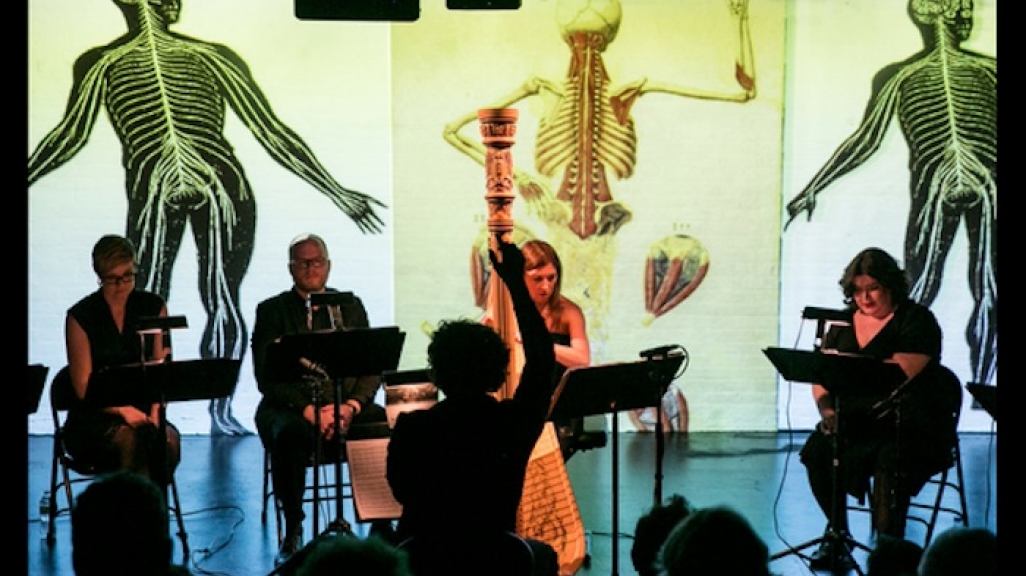Album Release: Pablo Ortiz — Choral Works
Album Release: Pablo Ortiz — Choral Works
Americas Society choir Meridionalis, led by Sebastián Zubieta, has released its first album, which features works by the Argentine composer that include madrigals, chant, and one “anti-carol” on the release by Naxos.
On March 8, 2019, Naxos relased a new album entitled Pablo Ortiz: Choral Works, highlighting recent works for voices by Argentine composer Pablo Ortiz and featuring Americas Society vocal ensemble Meridionalis and keyboardist Taka Kigawa, led by Sebastián Zubieta. This album was produced by Judith Sherman and recorded at the American Academy of Arts and Letters.
The composer writes:
Finding texts is possibly the hardest part of writing for voices. But, sooner or later, the texts come to you, and you discover deep connections with the words that compel you to try to set them to music. This collection represents most of my recent choral writing. An attentive listener may find echoes of Gregorian chant, ars subtilior, 16th-century polyphony, Yma Sumac, and Finnish and Argentinean tango. This variety is the result of my intense emotional connection with the past, and my belief that music is the ultimate time machine.
At the Pontifical Catholic University of Argentina in Buenos Aires, where I did my undergraduate work, all students study Gregorian chant for a year. Although I didn’tknow it at the time, this repertoire became a crucial factor in defining the way in which I work with the human voice. Maizal del gregoriano (2016) is a setting of a fragment of Arnaldo Calveyra’s extensive poem, published in 2005. The poem describes the voyage of a man from the Mesopotamia in Argentina, in the eastern part of the country, to the abbey of St. Pierre de Solesmes in north-western France, where Benedictine monks developed, in the early 20th century, the most current version of the Liber Usualis. Calveyra contrasts the idyllic description of the stained glass windows with the undulating landscapes of his native region in Argentina, and, at some point in the poem, he remembers the horrors of the military dictatorship and their repressive practices. The expressive apex of the piece occurs in the middle movement, with the phrase “Don’t forget about the power of forgetfulness.” The celesta takes the role of the little bells that signal important moments during mass, and the musical language is reminiscent of Benedictine chant.
About the composer
Pablo Ortiz was born in 1956 in Buenos Aires. He has written music for the San Francisco Contemporary Music Players (commissioned by the Koussevitzky Foundation), Chanticleer (commissioned by the Gerbode Foundation), and the Theatre of Voices, among others. He has also received commissions from the Terezín Music Foundation and the Centro de Experimentación del Teatro Colón in Buenos Aires. He received a John Simon Guggenheim Memorial Foundation fellowship and an American Academy of Arts and Letters Academy Award. Recent premieres include Tango Futurista for intonarumori conducted by Luciano Chessa, Trois tangos en marge performed by the Zebra Trio, Concerto for Bandoneon performed by the Santa Rosa Symphony and JP Jofre, Mores redux performed by the Sinfonie Orchester Biel Solothurn, and Jubilant Burbs performed by the Camellia Symphony Orchestra. Ortiz is professor of composition at the University of California, Davis.









